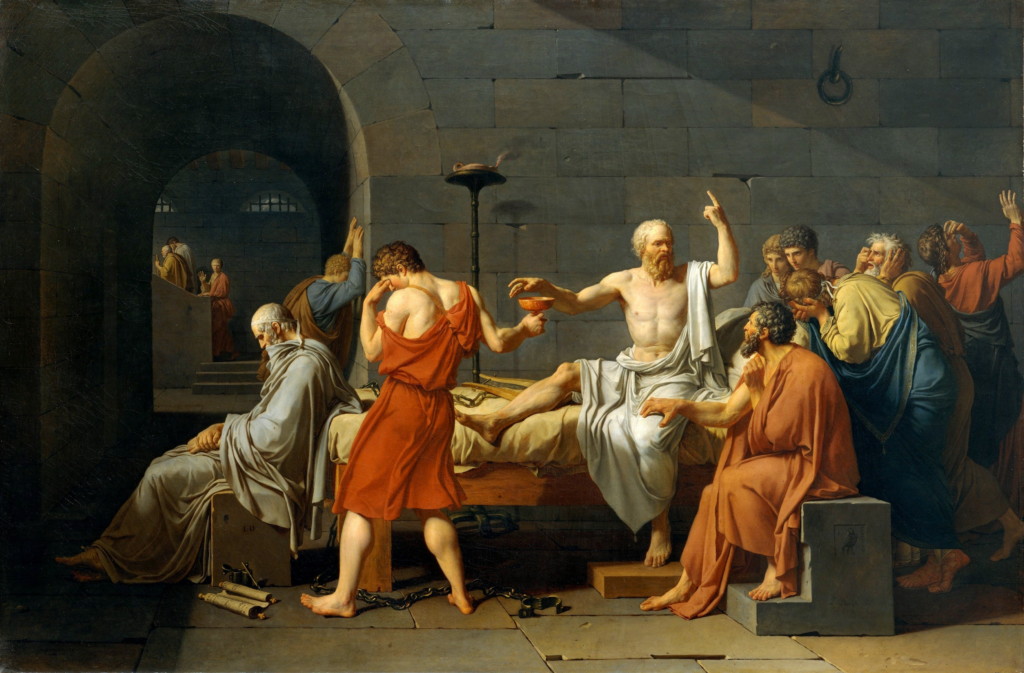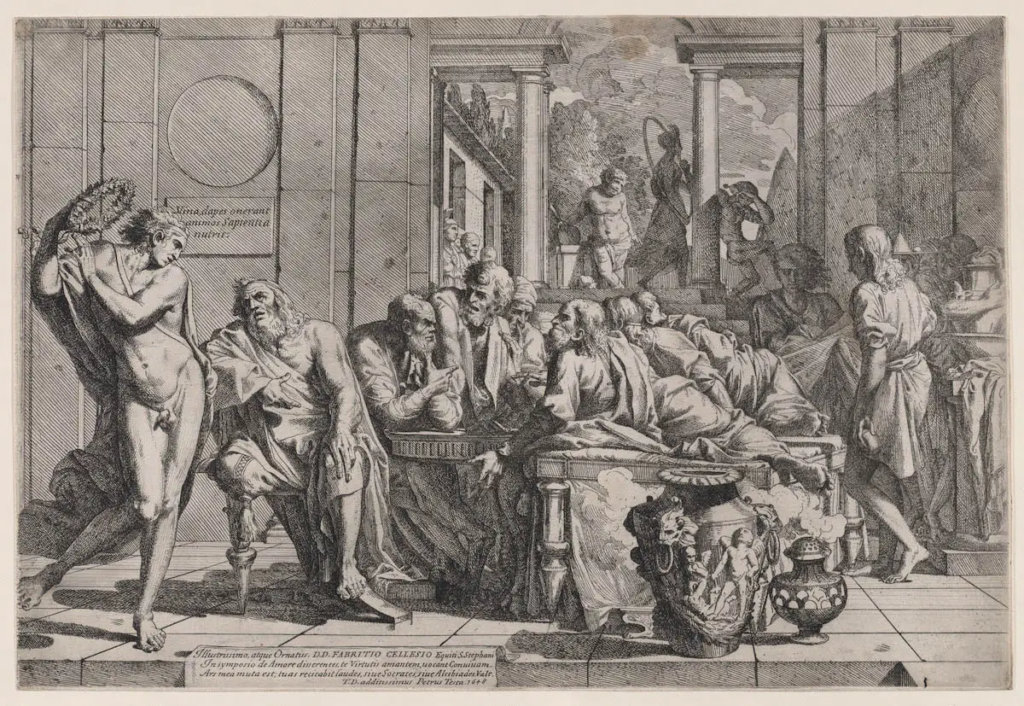Socrates was an ancient Greek philosopher who lived from 469 to 399 BC and is considered one of the most influential and recognized figures in the history of philosophy. As one of the thinkers who laid the foundations of Western philosophy, Socrates is particularly noted for his work in ethics and moral philosophy. His life, thoughts, and manner of death left a profound impact on both his contemporaries and subsequent generations.
The Life of Socrates

Socrates was born in Athens to a middle-class family. His father, Sophroniscus, was a stone mason, and his mother, Phaenarete, was a midwife. In his youth, Socrates is believed to have followed in his father’s profession and worked as a sculptor. However, his interest in philosophy gradually took precedence over his artistic endeavors. Much of what we know about Socrates’ life comes from the writings of his students, Plato and Xenophon. Although many details about Socrates’ life and personality are known, the fact that he left no written works makes it still a subject of debate regarding the exact nature of his thoughts.
Socrates’ philosophical career coincided with a period when Athens was at its political and cultural peak. He had a significant impact, especially among the youth, encouraging them to question their own thoughts. However, this influence was viewed as dangerous, particularly by the aristocratic classes of Athens. Socrates’ lifestyle and ideas often conflicted with the prevailing norms of society, leading to frequent criticism. Nevertheless, the ideas he proposed and his method of questioning were seen by many as enlightening and revolutionary.
Philosophical Views

Socrates’ philosophical thoughts primarily focused on ethics and moral philosophy. His most famous teaching is encapsulated in the statement, “The unexamined life is not worth living.” This expression forms the foundation of Socratic philosophy. Socrates believed that individuals should continuously question their own lives and beliefs. He thought that through this process of questioning, people could lead a virtuous life. According to him, knowledge was the foundation of virtue, and individuals could only lead a right and moral life by acquiring knowledge.
Socrates’ philosophical method is known as the Socratic Method (or Socratic Dialogue). This method aims to make a person aware of their own ignorance through dialogues that proceed in a question-and-answer format. By using this method, Socrates encouraged people to reflect on their prejudices and false beliefs, guiding them toward acquiring true knowledge. This approach is considered not only a valuable tool in philosophical discussions but also a fundamental method in education.
Socrates’ Students and His Influence

One of Socrates’ most famous students is undoubtedly Plato. Plato deeply examined his teacher’s teachings and built his own philosophical system upon these foundations. Plato’s works detail Socrates’ thoughts and dialogues, often featuring Socrates as the main character. These writings have played a critical role in conveying Socrates’ ideas to the present day. Another important student of Socrates is Xenophon. His writings also provide significant insights into Socrates’ life and thoughts, but Xenophon’s perspective is quite different from Plato’s, often focusing more on practical and military matters.
Socrates’ philosophical influence was not limited to his students. Later philosophers such as Aristotle, Epictetus, and Marcus Aurelius were also influenced by Socratic thought. His method of moral inquiry left a profound impact on many philosophical schools, including the Stoics and Cynics. Furthermore, in the history of modern philosophy, Socrates has frequently been referenced as a key figure in discussions of ethics and moral philosophy.
The Trial and Death of Socrates

One of the most dramatic moments in Socrates’ life was his trial and execution in Athens in 399 BC. He was brought to court on charges of corrupting the youth and denying the city’s gods. However, it is believed that there were deeper political and social reasons behind these accusations. Socrates challenged the traditional values and authority of Athens, making him a dangerous figure in the eyes of the power centers of his time.
During the trial, Socrates had the opportunity to defend himself, but he stated that he had dedicated his life to a questioning existence and would not change this way of life. This stance did not sway the jury, which sentenced him to death. Socrates was executed by drinking hemlock poison. His death has gone down in history as a powerful message about the necessity of defending a philosophical stance, even at the cost of one’s life. After Socrates’ death, his memory grew to become a philosophical ideal.
The Legacy of Socrates

Socrates left a profound legacy on Western philosophy. His method of questioning laid the foundation for philosophical thought and the scientific method. Socrates’ teachings encouraged people to continually question their own beliefs and emphasized the importance of knowledge in this process. This is considered one of the cornerstones of modern thought and critical thinking.
Socrates’ life can be viewed not only as that of a philosopher but also as that of a moral hero. Throughout his life, he remained committed to moral values and defended his beliefs, even at the cost of his life. For this reason, Socrates’ life and death have served as a source of inspiration for those who advocate that philosophy and ethics should be embraced as a practical way of life.
Socrates’ legacy continues to influence philosophical thought today. His method of questioning can be applied across various fields, from education to politics, and from ethical discussions to personal development. Socrates’ life demonstrated how significant philosophy and thought are in human life, and this legacy remains strong to this day.


